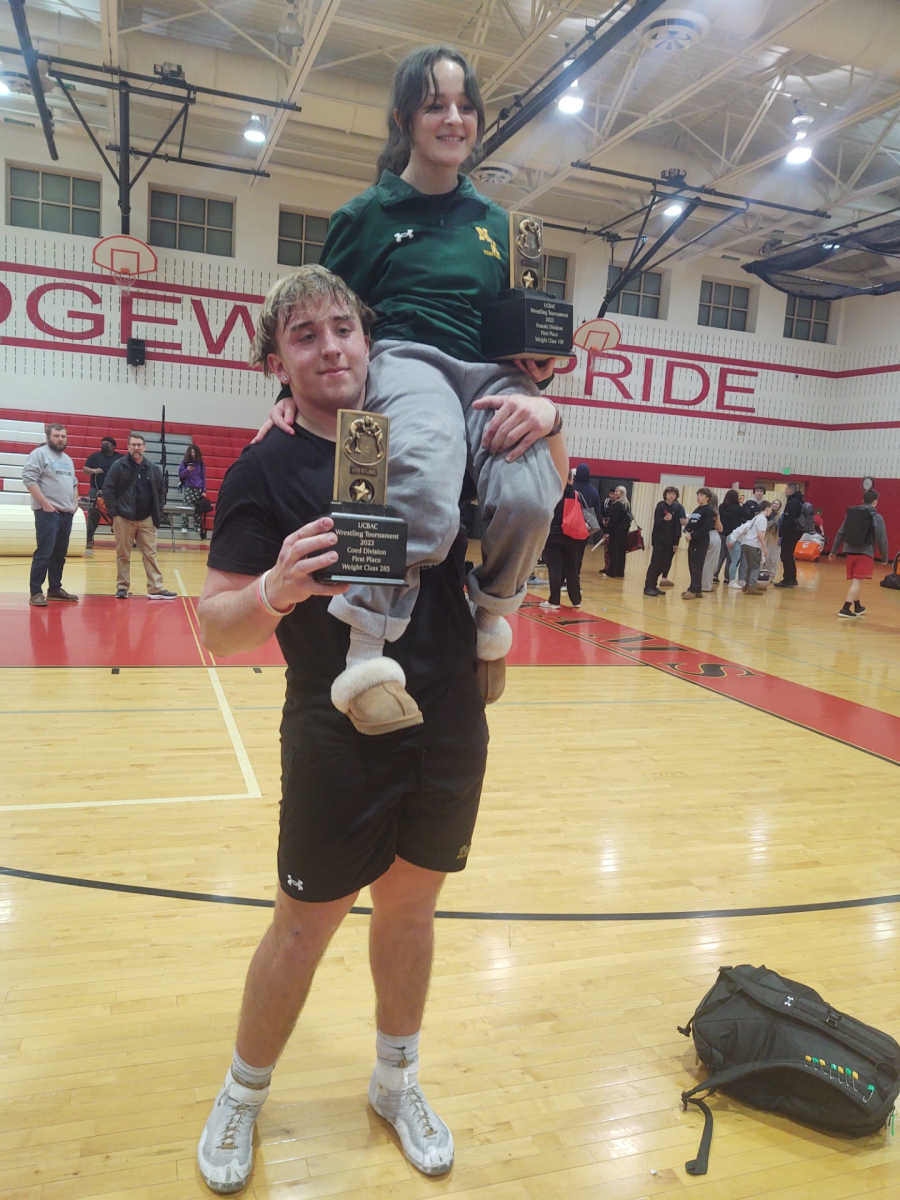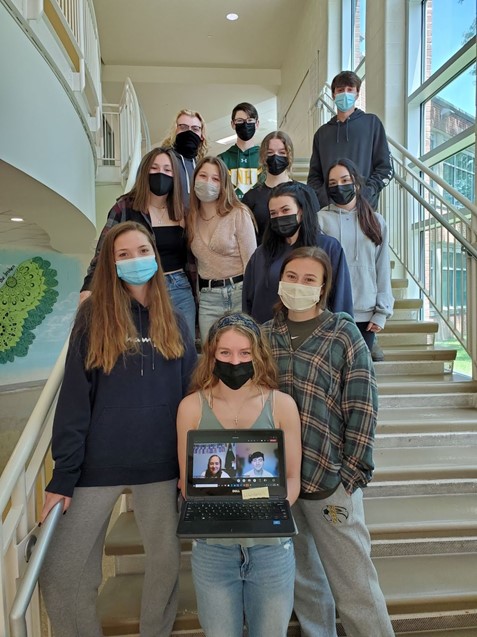Global connections expanded; Partner school’s enlighten language learning
The Spanish class’s partner school in Spain requested a picture of their friends in America to be put in a magazine for their school; Marissa Altenburg and Evan Kuzemchak pose virtually for the photo.
May 17, 2021
At NH, students have been given the opportunity to learn a language in a “unique and thrilling way,” according to language teacher Mary Capellan. Some of the language teachers have set up a safe environment for students to interact with people from schools in Spain, Germany, and France.
Capellan believes having these pen-pals are important because they, “make the world seem smaller. By connecting with people in different places it makes them more real to the learner.” She loves how having a partner school, “allows for the opportunity to build a relationship with someone you never would have met in a safe way.”
“It also encourages students to see cultural aspects of a new place and come more alive while learning,” Capellan added. Something special students have learned about Spanish culture from their partner’s videos is how “they celebrate a new year by eating 12 grapes.”
Capellan has learned some lessons herself when it comes to, “the community of Basque where the partner school is located and how that region is different from others.” She has even freshened up on language characteristics that are specific to Spain. Such as, “improving Vosotros word skills because they don’t use that in the Caribbean where most of […] [her] communication with Spanish speakers has taken place.”
French teacher Larissa Arist revealed that the best experience she had while working with partner schools in France was, “having a group of about 15 French high school students visit the U.S. and stay with some NH students in the fall of 2019.”
She believes the “most valuable thing about learning another language is the connection you can make with people,” which is why Arist strives to give her students the opportunity. She hopes that the experience inspires students’, “curiosity for people and cultures around the world along with, increases motivation to grow and explore. Maybe they can even gain a friend to go visit one day!”
A partner at the Spanish school, Intza Jackson, “would have loved to have done this earlier.” She found it, “interesting to see how different the culture and studying was between the schools. It is nice meeting someone else who has lived a different experience to give another perspective.”
She is fluent in English because her “Dad is from New Zealand,” so English is her first language. Jackson also gained her skills from her, “studies for a degree.”
From her partner she feels like she saw, “a more relaxed lifestyle when it came to school because it doesn’t look as stressful as the Spanish school system.”
Jackson hopes her partner was able to see the freedom they have “to move around and go out with friends,” since they live in a little town.
Madison Quick is a Junior that was, “very excited to talk to other people in a different country.” She noticed that the “major difference between the way Spain does their school days compared to America is their breaks. In Spain, the students get a break in the middle of the day that lasts a few hours. The students are allowed to leave and go home, and return later.”
As simple as talking about school and sports with someone sounds, it can easily become complicated when there is a language difference. For Quick, her main challenges included “trying to keep up and understand the writing and fluent Spanish,” of her partner.
But Madison still enjoyed the experience because “taking the time to constantly listen to the partner talk in Spanish and going back to understand him,” helped Quick become better at Spanish and, “overall love the experience!”
Bradley Tompkins is a Sophomore who also found the experience, “really exciting.” He learned so much from talking about, “school and different activities during the holidays.”
Tompkins found that many Spanish towns, “have central areas where markets and parades take place, kind of like America.” He also learned, “that Spanish schooling is more lecture-based, like college or AP classes, while American schools use different methods to teach like worksheets, review games, etc.”
For the Sophomore, “biggest challenge was having trouble interpreting what […] [his] partner was saying when he was talking in Spanish, otherwise, communication was not too difficult.”







